I was getting ready to lounge at nearby Fletcher Cove, just north of Carlsbad, California, when my phone buzzed with a message from my dad, “The flowers are in bloom.”
Dad was talking about the Carlsbad Flower Fields — the rolling expanse of ranunculus just below the Grand Pacific Palisades, where my family has vacationed for more than 20 years. The timeshare sits high above the rows, offering a view of the ocean and, if you time it right, the bloom.
I’d never visited the flower fields at peak bloom, though I’d always wanted to. Most years, we miss it by a few weeks. But this time, I happened to be nearby with my son and two of his friends. So I gathered them up and we went.
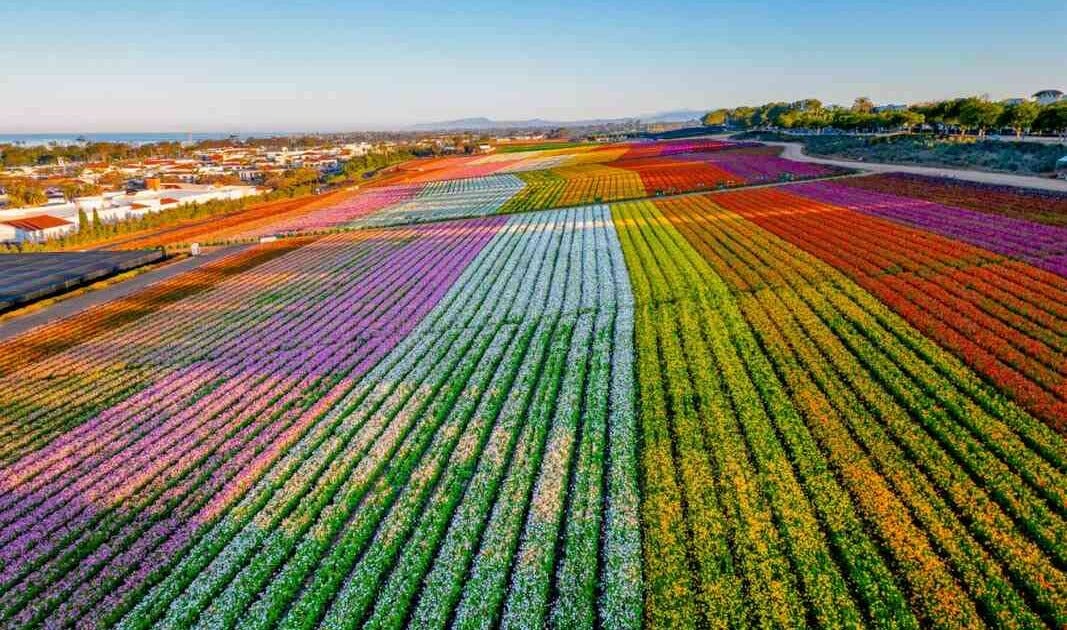
I’m glad we finally timed this right. It’s definitely a sight to behold. If three eighth-grade boys can be spellbound by a hillside of flowers that spills toward the Pacific like a quilt of fire and sunlight, you know it’s something special.
But it wasn’t just the beauty that caught me off guard — it was the contrast.
On one side of the field, girls in coordinated outfits posed with selfie sticks, capturing their best angles. On the other, laborers bent low, sweltering under the sun, tending each row with quiet precision. Two very different kinds of presence in the same space: one curated, the other nearly invisible.
In that field, I see two sides of life that could have been mine. In that field I see both of my fathers.
My biological father came from the Philippines as a child in the mid-1960s. His father served in the U.S. military. I never had the chance to meet him — he died before I could find him — but I did meet his twin brother, a man who made his career in healthcare and radiates unconditional kindness and joy.
My birth parents were teenagers when I was born — young, unprepared, and caught in a system that left them with few real choices. His parents hadn’t migrated from the Philippines for their son’s future to be derailed by teen pregnancy. And at the time, many young mothers — especially within Catholic communities — were met with intense pressure, even coercion, to place their babies with married couples. I was one of them.
I didn’t grow up knowing that side of my family, but I carried them with me. They're in my face and DNA, and sometimes in the questions I can’t quite answer.
When I look into a field of workers, or immigrants in other lines of work, I sometimes wonder what my life might have looked like if things had gone another way. If that had been my path. My future. My inheritance.
But my father — the one who raised me — has shaped me more than any DNA ever could.
He retired recently, but Dad’s been a Catholic deacon my entire life. I’m 46 now, and I’ve never known a time when he wasn’t quietly showing up for others. He built his career from the ground up, putting himself through school, rising through the ranks in a sport coat and tie, briefcase always in hand. But his true calling has always been the quiet field work at the heart of the corporal works of mercy: serving meals, organizing clothing drives, comforting the sick, showing up for migrants, refugees, and anyone else in need. What you won’t find associated with dad’s “field work” are photos and hashtags. With him, there’s no need for credit. He’s just a dude about service, because he can.
And today, Father’s Day, I called to tell him I love him. But I called back minutes later for another reason.
I had just read about his bishop-elect, Michael Pham, urging Catholics to show up for immigrants, especially as due process continues to erode in courtrooms and policy debates. The bishop’s words were urgent: that we must not only speak but act — in defense of dignity, humanity, and basic rights.
I asked my dad what he thought.
He didn’t pause.
“I may even go down there myself,” he said.
You should, Dad.
You really should.
Because what we need right now isn’t just economic arguments about why immigrants “matter.” We need people to say they matter because they are human. Not for what they do, but for who they are. Because without them, our communities and our country wouldn’t just be less productive. They’d be spiritually hollow. Colorless.
When I look at photos of the flower field I took that day, I realized how symbolic that landscape really is. Workers and consumers. Labor and leisure. Privilege and perseverance. All occupying the same space. And yet, rarely truly seeing one another.
But my father has always seen.
Always served.
Always stepped forward when others stayed comfortable.
The most powerful lessons I’ve learned from my father weren’t spoken from the pulpit, they’ve come from how he lives. That faith without action is theater. That service without sacrifice is branding. And that to be human is to recognize the humanity in someone else, especially when the world is trying to erase it.
The flowers are in bloom.
But someone has to plant them.
Someone has to tend them.
Someone has to care.
This Father’s Day, I honor a man who is still fathering. Who is doing literal field work — in and out of the soil. I see you.
I love you.
About Sarah and All Things IWC
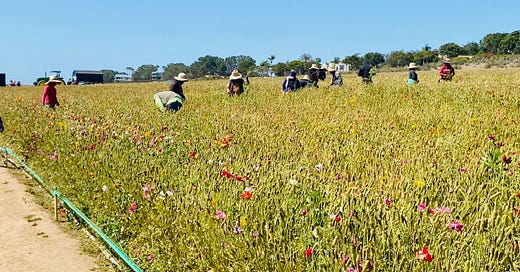



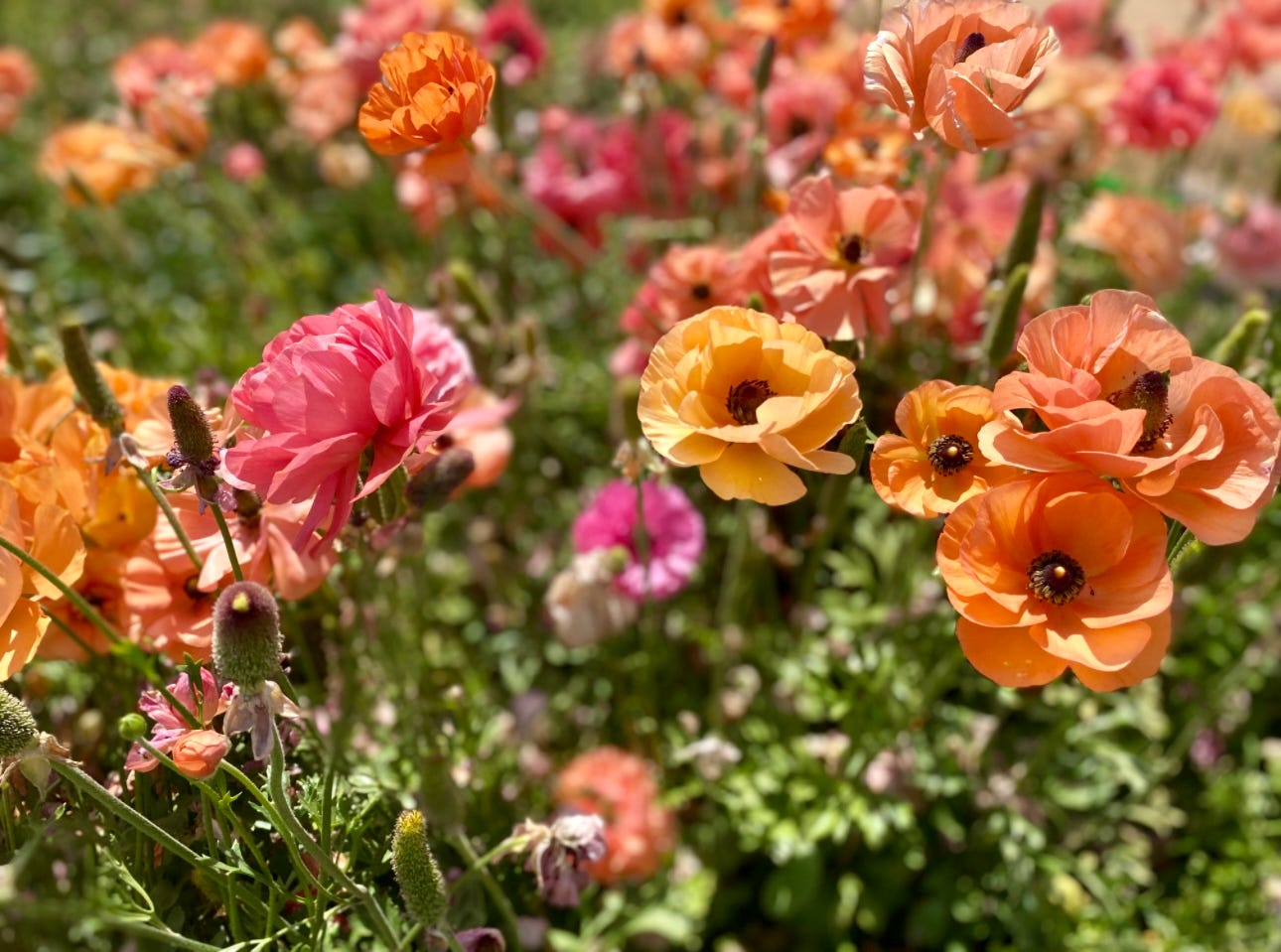
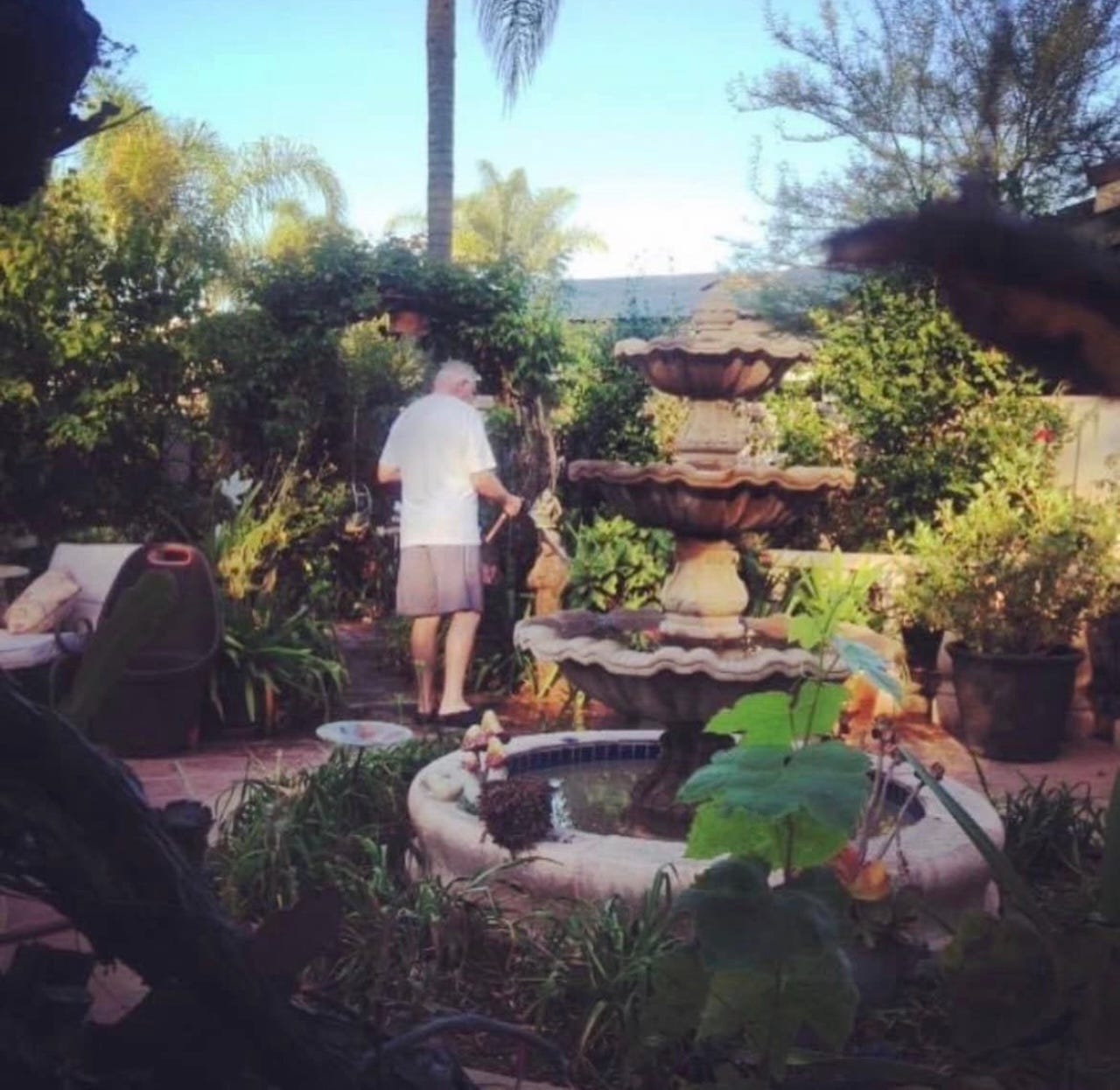


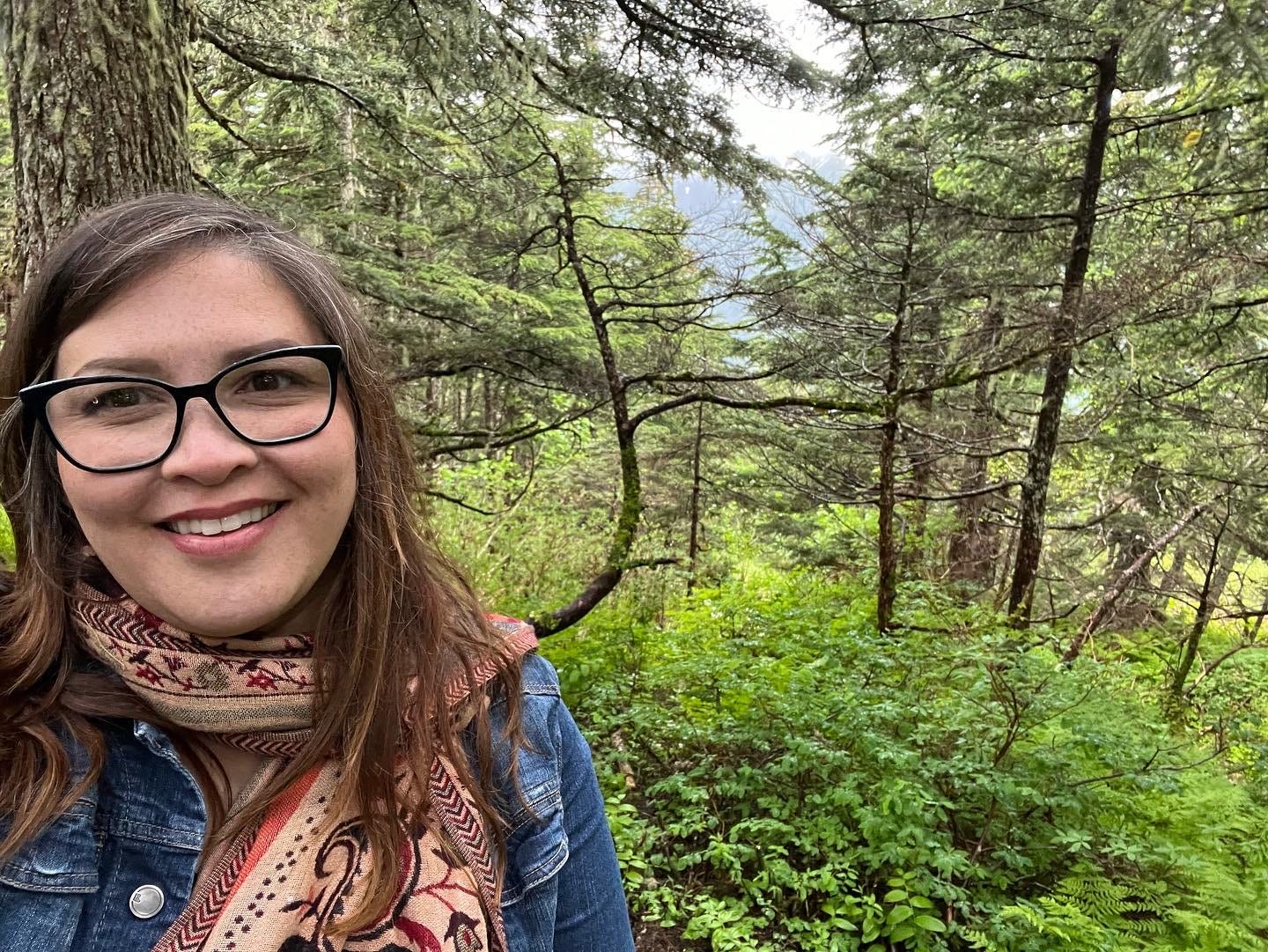
Thank you for this tribute to your father and to immigrants. I have been trying to get to this piece since you wrote it. Now is the time when I have stopped to sit on the front porch and listen/watch a storm come in. Glad I finally found a moment.
This is so amazing. I love how you were able to connect this to the current situation about human rights in our country. Also, I love how you said immigrants matter because there people, not just economical assets. So often the argument is that by deporting people we will harm the economy and not about the inherent rights they have just because they’re people.